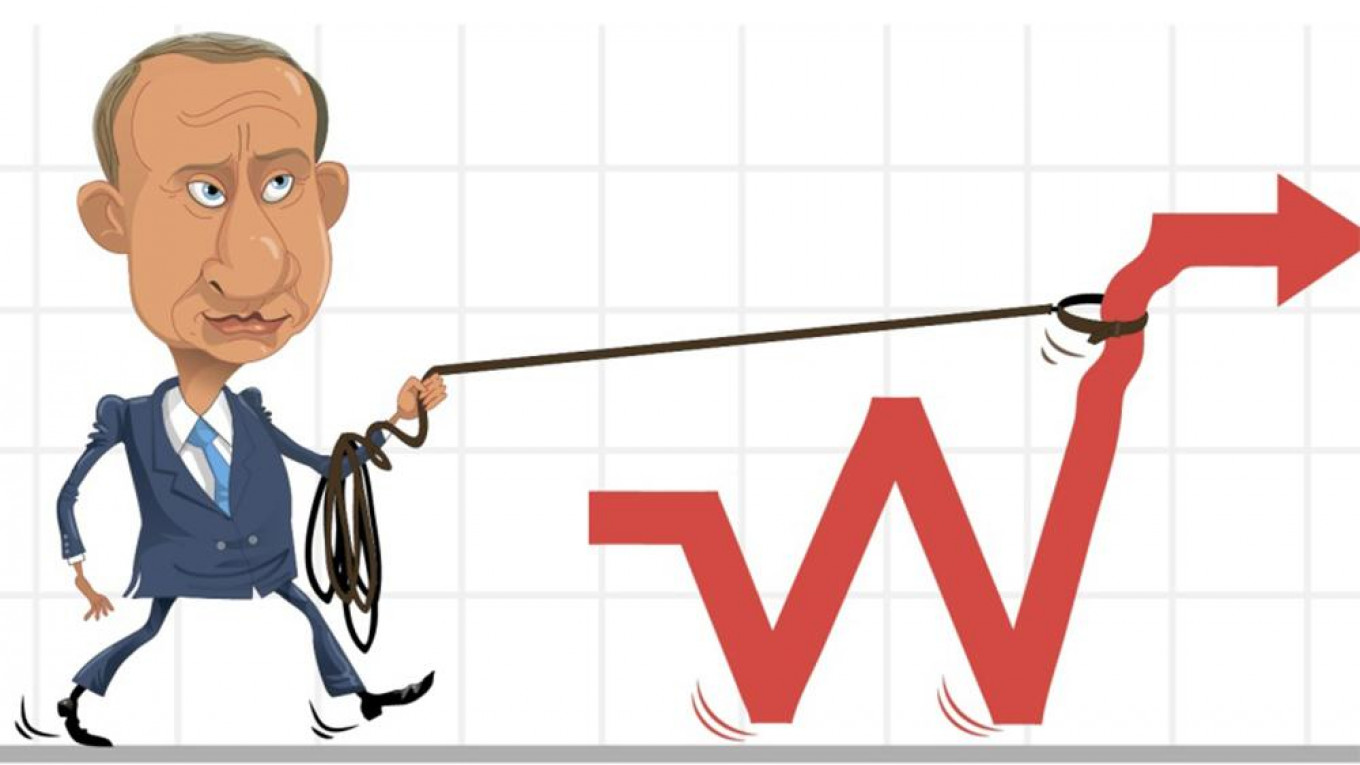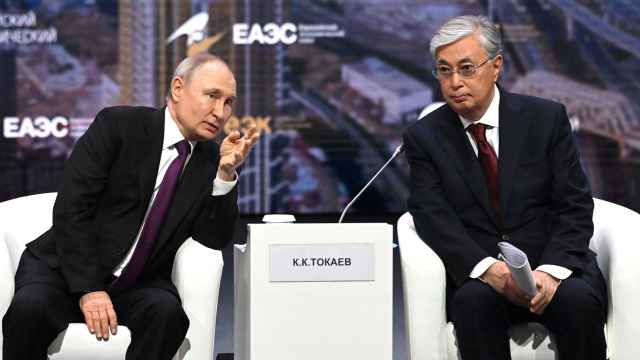The number of Russian bankruptcies is rising. Financial Corporation Otkritie, Binbank and airline VIM Avia are just a few of the Russian firms that have gone bust over the summer as the number of companies going to the wall continues to rise this year despite the nascent economic recovery.
Russia has emerged from one of its deepest post-Soviet recessions and put in an expectedly good 2.5 percent GDP growth in the second quarter of this year. But that is not good enough for many firms still hurting from nearly eight years of economic sloth.
One of the side effects of the slowdown has been a consolidation of many sectors where the leading cash-rich firms have started aggressive price wars that have put their smaller rivals under pressure, leading to a concentration of many sectors in the hands of the market leaders.
The Russian economy has entered the trajectory of "fairly stable growth," President Vladimir Putin said on Sept. 24, but with high borrowing costs and anaemic growth in real wages the economy is hardly flourishing.
And things are going to get worse for many firms as the majority of Russia’s enterprises remain directly or indirectly dependent on budget spending; as part of the 2018 to 2020 budget planning many large state-owned enterprises (SOEs) are losing their subsidies, which in turn feed smaller companies with state orders. The state-owned Rosselkhozbank is only the latest state-owned entity to be cut off from its subsidies under the new budget this week.
Further down the food chain fast food restaurants Sbarro and the Russian low-end eatery Yalki Palki are both shutting up shop this year as sales fall. In the beer sector, a star investment in the 90s, the market leaders Turkey’s leading brewer Anadolu Efes and global giant AB InBev are merging their Russia and Ukraine businesses due to falling sales.
The number of bankruptcies of legal entities grew for the third consecutive quarter in the second quarter of 2017, according a report from the Centre for Macroeconomic Analysis and Short-Term Forecasting, Vedomosti reports. Some 336 more companies collapsed in the second quarter of this year than closed in the same period a year earlier – the highest level since 2007.
The growth in the number of bankruptcies is observed in almost all industries, but almost two thirds of all bankrupts are concentrated in three of them: trade, commercial services and construction. More recently the number of bankruptcies has accelerated in the electric power industry, metallurgy, machine building, and the food industry.
The increasingly stingy budget spending is probably the main cause of businesses’ problems. Following an extremely difficult 2016, where the Ministry of Finance was short 2 trillion rubles to balance the budget, the government has been cutting everything it can.
The recent rise of oil prices to over $50 has taken the pressure off MinFin, but given the budget’s ongoing exposure to the prevarications of oil prices the ministry is maintaining its parsimonious approach to state subsidies.
The closures are also being driven by the increased caution in the banking sector. Following the 2008 crisis many banks preferred to roll over loans and restructure debt instead of foreclosing on troubled debtors, thus kicking the can down the road.
As the Central Bank of Russia (CBR) is also tightening the noose on banks as part of its clean-up of the sector, cheap credits from the regulator are getting increasingly hard to find, so commercial banks are starting to unwind those generous restructuring deals to get as much bad debt off their books as they can. Companies that should have died in 2008 are dying now instead.
Bankruptcies should be part of the renewal of an economy, as outmoded firms leave the market to be replaced by younger and more dynamic companies. Except that is not happening in Russia, according to the director of the Centre for Market Research of the ISEHE Higher School of Economics Georgy Ostapkovic. More companies are leaving the market than are entering it, Ostapkovic says, cited by Vedomosti.
That leaves only 12 to 14 percent of all companies that are flourishing from all the companies in the economy, and they are all owned by the state, says Ostapkovich.
Read more at bne.eu
A Message from The Moscow Times:
Dear readers,
We are facing unprecedented challenges. Russia's Prosecutor General's Office has designated The Moscow Times as an "undesirable" organization, criminalizing our work and putting our staff at risk of prosecution. This follows our earlier unjust labeling as a "foreign agent."
These actions are direct attempts to silence independent journalism in Russia. The authorities claim our work "discredits the decisions of the Russian leadership." We see things differently: we strive to provide accurate, unbiased reporting on Russia.
We, the journalists of The Moscow Times, refuse to be silenced. But to continue our work, we need your help.
Your support, no matter how small, makes a world of difference. If you can, please support us monthly starting from just $2. It's quick to set up, and every contribution makes a significant impact.
By supporting The Moscow Times, you're defending open, independent journalism in the face of repression. Thank you for standing with us.
Remind me later.







